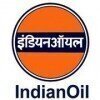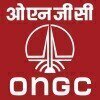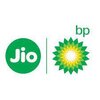Filter interviews by
Bharat Petroleum Diploma Mechanical Engineer Interview Questions, Process, and Tips
Bharat Petroleum Diploma Mechanical Engineer Interview Experiences
2 interviews found
(6 Questions)
- Q1. What is pump working principles
- Ans.
Pump working principles involve the conversion of mechanical energy into fluid energy to transport fluids.
Pumps use mechanical energy to create pressure and move fluids.
They work based on the principle of fluid dynamics.
Pumps have an inlet and an outlet where fluids enter and exit.
The pump imparts energy to the fluid, increasing its pressure and kinetic energy.
Different types of pumps include centrifugal pumps, recipro...
- Q2. What is valve type of valve
- Ans.
A valve is a device that controls the flow of fluid or gas by opening, closing, or partially obstructing various passageways.
Valves are used in various industries such as oil and gas, water treatment, power generation, and manufacturing.
There are different types of valves including gate valves, globe valves, ball valves, butterfly valves, and check valves.
Gate valves are used to fully open or close the flow of fluid, w...
- Q3. Working principal gate valve
- Ans.
A gate valve is a type of valve that uses a gate or wedge-shaped disc to control the flow of fluid.
Gate valves are primarily used to start or stop the flow of fluid in a pipeline.
They have a sliding gate or disc that moves perpendicular to the flow of fluid.
When the gate is fully lifted, the flow is unrestricted, and when it is fully closed, the flow is completely stopped.
Gate valves are commonly used in applications w...
- Q4. What is HSD density
- Ans.
HSD density refers to the density of High-Speed Diesel fuel.
HSD density is the measure of mass per unit volume of High-Speed Diesel fuel.
It is typically expressed in kilograms per liter (kg/L) or grams per milliliter (g/mL).
The density of HSD can vary depending on factors such as temperature and composition.
Knowing the density of HSD is important for various engineering calculations and fuel efficiency analysis.
For exa...
- Q5. What is EBMS density
- Ans.
EBMS density refers to the density of the Engineered Biomaterial System used in mechanical engineering.
EBMS density is a measure of the mass per unit volume of the Engineered Biomaterial System.
It is an important parameter in designing and analyzing mechanical components made from EBMS.
EBMS density can vary depending on the composition and structure of the biomaterial.
Higher density materials are generally stronger and...
- Q6. What is nozzle use of nozzle
- Ans.
A nozzle is a device used to control the flow and direction of a fluid or gas.
Nozzles are commonly used in various industries such as aerospace, automotive, and manufacturing.
They are used to accelerate or decelerate fluid flow, create a desired spray pattern, or generate thrust.
Examples of nozzle applications include rocket engines, fuel injectors, spray painting equipment, and fire hoses.

(3 Questions)
- Q1. Explain the different types of fit?
- Ans.
Different types of fit include clearance fit, interference fit, and transition fit.
Clearance fit: parts are designed to have a gap between them, allowing for easy assembly and disassembly.
Interference fit: parts are designed to be pressed or forced together, creating a tight and secure fit.
Transition fit: parts have a small amount of overlap, creating a balance between clearance and interference fit.
Examples include pi...
- Q2. Name the boiler that does not need a steam drum?
- Ans.
Benson Boiler is the boiler that does not need a steam drum.
Benson Boiler is a high-pressure, drumless, water tube steam boiler
It works on the principle of critical pressure
It is used in thermal power plants for generating power
It has a high thermal efficiency and can handle a wide range of fuel types
- Q3. Why would you use pneumatic?
- Ans.
Pneumatics is used for its simplicity, reliability, and cost-effectiveness in various applications.
Pneumatic systems are easy to install and maintain.
They are reliable and have a long lifespan.
Pneumatics are cost-effective compared to other systems.
They are used in various applications such as manufacturing, transportation, and construction.
Examples include pneumatic drills, air compressors, and pneumatic cylinders.
(1 Question)
- Q1. What are various types of brakes ?
- Ans.
Various types of brakes include disc brakes, drum brakes, regenerative brakes, electromagnetic brakes, and hydraulic brakes.
Disc brakes use calipers to squeeze brake pads against a rotor to slow or stop the vehicle.
Drum brakes use shoes that press against the inside of a drum to slow or stop the vehicle.
Regenerative brakes convert kinetic energy into electrical energy to recharge the battery.
Electromagnetic brakes use ...
(1 Question)
- Q1. How will you classify sliding contact
- Ans.
Sliding contact can be classified based on the type of motion and the nature of the surfaces in contact.
Sliding contact can be classified as sliding, rolling, or twisting contact.
Based on the nature of the surfaces in contact, sliding contact can be classified as dry or lubricated contact.
Examples of sliding contact include the contact between brake pads and rotors, gears in a gearbox, and the contact between a piston ...
Interview Preparation Tips
Interview questions from similar companies

Mechanical Engineer Interview Questions & Answers
Indian Oil Corporationposted on 11 May 2018
I applied via Company Website and was interviewed before May 2017. There were 2 interview rounds.
Interview Preparation Tips
Experience: I have diploma °ree both in mechanical engineering
General Tips: My interview was held in bombay at head office of aarviencon.limited by H.R deportment darshan patel for 30 min at this time i maintain my pecence.
the question was realeted my subject mechanical engg and spoken english
Skills: communication skill, Communication, Leadership, Presentation Skills, Decision Making Skills
Duration: 1-4 weeks

Mechanical Engineer Interview Questions & Answers
Indian Oil Corporationposted on 23 Dec 2019
I applied via Walk-in and was interviewed in Nov 2019. There was 1 interview round.
Interview Questionnaire
2 Questions
- Q1. I'm autocad draftsman solidworks designer engineer
- Q2. Production quality manufacturing company
Interview Preparation Tips

Maintenance Engineer Interview Questions & Answers
Reliance Industriesposted on 12 May 2018
I applied via Recruitment Consultant and was interviewed in Jan 2018. There were 5 interview rounds.
Interview Questionnaire
4 Questions
- Q1. Discussed about static equipment maintenance,like Heat exchanger,vessel,column etc.
- Q2. Last position,location,salary,total years of experience etc.
- Q3. Facilities provided by company,bonus,accommodation
- Q4. Salary offer by HR,leaves like SL,CL,PL ,food,transportation
Interview Preparation Tips
Experience: Basis on maintenance experience
General Tips: Be passionate your self,as per CV they will ask you,tell them no if you don't know about the answer, it means straight forward not rounding them.
Skills: Communication, Leadership, Presentation Skills
Duration: 1-3 Months

I applied via Company Website and was interviewed in Aug 2022. There were 3 interview rounds.

(1 Question)
- Q1. Basic Question related to mechanical basics
(2 Questions)
- Q1. Tell me about yourself
- Q2. Strength & Weakness, Where you see 5 years from now.
Interview Preparation Tips

I applied via Campus Placement and was interviewed before Sep 2022. There were 3 interview rounds.

(1 Question)
- Q1. What would you do if the design called for tight tolerances and the part was manufactured out of tolerance
- Ans.
I would assess the impact of the out-of-tolerance part and determine if it can still function within acceptable limits or if it needs to be reworked or replaced.
Assess the functionality of the part with the out-of-tolerance dimensions
Determine if the part can still meet the overall design requirements despite being out of tolerance
Consider the potential impact on the performance and safety of the final product
Consult w...
(1 Question)
- Q1. Tell me what you see about his drawing
- Ans.
The drawing appears to be a mechanical component with multiple parts and dimensions.
The drawing includes various geometric shapes such as circles, rectangles, and lines.
There are labels indicating dimensions and measurements for each part.
The drawing may also include annotations or symbols representing different materials or processes.
It seems to be a detailed technical drawing for manufacturing or assembly purposes.
Skills evaluated in this interview

(3 Questions)
- Q1. What is yield strength and ultimate strength
- Ans.
Yield strength is the stress at which a material begins to deform plastically, while ultimate strength is the maximum stress a material can withstand before breaking.
Yield strength is the point where a material starts to deform plastically, meaning it will not return to its original shape once the stress is removed.
Ultimate strength is the maximum stress a material can withstand before it breaks or fractures.
Yield stre...
- Q2. All FEA related questions
- Q3. All basic SOM and SHEET METAL RELATED QUESTIONS
Interview Preparation Tips

I applied via Recruitment Consulltant and was interviewed in Aug 2024. There was 1 interview round.
(2 Questions)
- Q1. Tell me about yourself
- Ans.
I am a dedicated Maintenance Engineer with a strong background in mechanical and electrical systems.
Experienced in troubleshooting and repairing machinery
Skilled in preventive maintenance practices
Familiar with PLC programming and automation systems
Strong attention to detail and problem-solving skills
- Q2. Why do you want to change jobs
- Ans.
Seeking new challenges and opportunities for growth in a dynamic work environment.
Looking for new challenges and opportunities for professional growth
Interested in working in a more dynamic and innovative work environment
Seeking a position with more responsibilities and opportunities to learn new skills

I applied via Referral and was interviewed before Apr 2022. There were 3 interview rounds.

(2 Questions)
- Q1. Why would you like to work with shell?
- Q2. Have you worked in any oil and gas facility before now?
What I know about permit to work system
Bharat Petroleum Interview FAQs
Tell us how to improve this page.
Bharat Petroleum Interviews By Designations
- Bharat Petroleum Management Trainee Interview Questions
- Bharat Petroleum Apprentice Trainee Interview Questions
- Bharat Petroleum Apprenticeship Trainee Interview Questions
- Bharat Petroleum Graduate Apprentice Trainee Interview Questions
- Bharat Petroleum Apprentice Interview Questions
- Bharat Petroleum Graduate Engineer Interview Questions
- Bharat Petroleum Graduate Apprentice Interview Questions
- Bharat Petroleum Maintenance Engineer Interview Questions
- Show more
Interview Questions for Popular Designations
- Diploma Trainee Engineer Interview Questions
- Diploma Electrical Engineer Interview Questions
- Diploma Civil Engineer Interview Questions
- Diploma Electronics Engineer Interview Questions
- Diploma Apprentice Trainee Interview Questions
- Diploma Chemical Engineer Interview Questions
- Diploma Automobile Engineer Interview Questions
- Diploma Engineer Trainee - DET Interview Questions
- Show more
Bharat Petroleum Diploma Mechanical Engineer Interview Process
based on 1 interview
Interview experience
Interview Questions from Similar Companies
Fast track your campus placements
Bharat Petroleum Diploma Mechanical Engineer Reviews and Ratings
based on 3 reviews
Rating in categories
|
Graduate Apprentice Trainee
233
salaries
| ₹1 L/yr - ₹5 L/yr |
|
Assistant Manager
232
salaries
| ₹12 L/yr - ₹36 L/yr |
|
Manager
162
salaries
| ₹16.2 L/yr - ₹40 L/yr |
|
Graduate Apprenticeship Trainee
129
salaries
| ₹3 L/yr - ₹5 L/yr |
|
Management Trainee
93
salaries
| ₹16 L/yr - ₹21.9 L/yr |

Reliance Industries

Indian Oil Corporation

Shell

Hindustan Petroleum
- Home >
- Interviews >
- Bharat Petroleum Interview Questions >
- Bharat Petroleum Diploma Mechanical Engineer Interview Questions


























